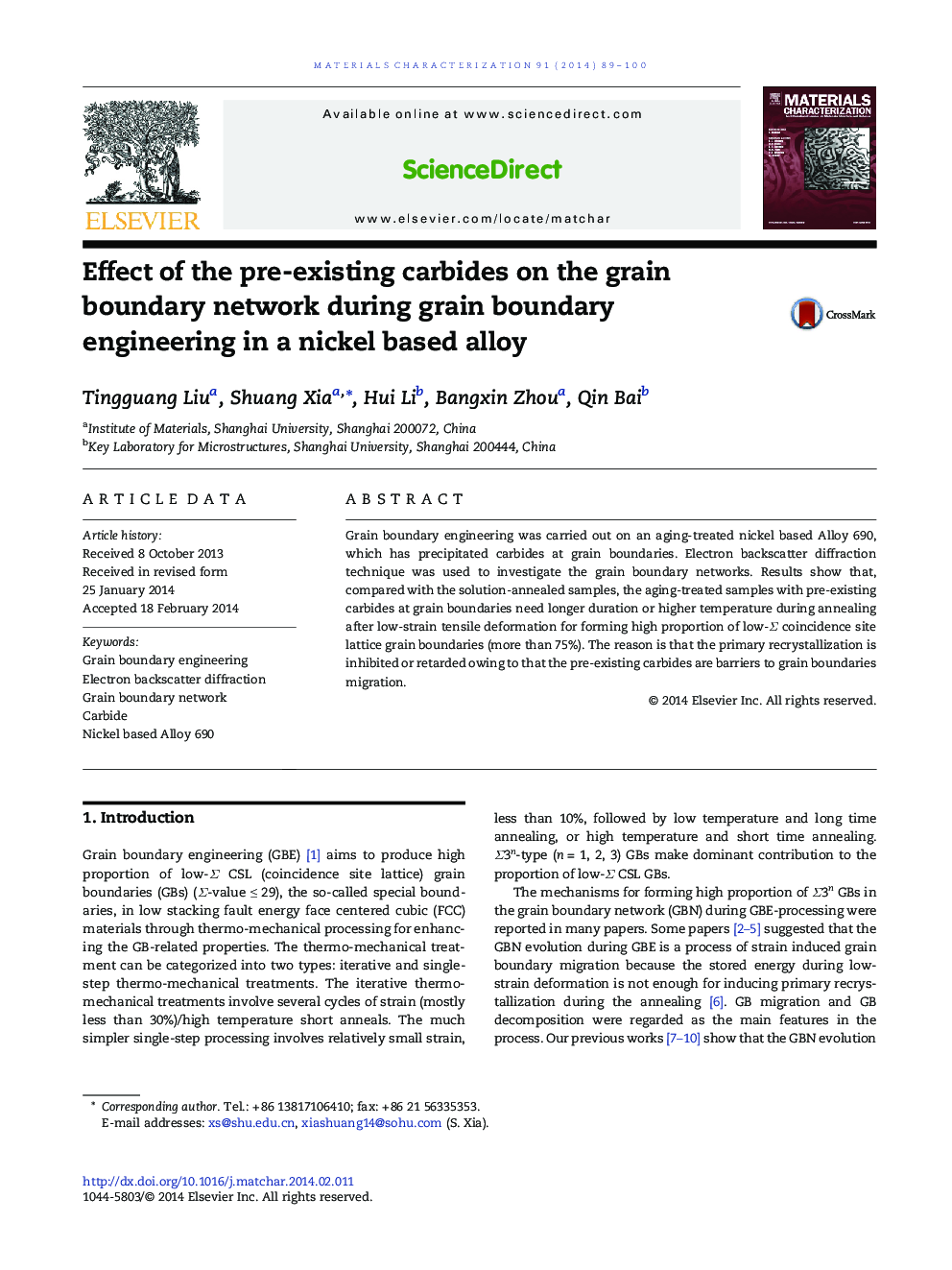| Article ID | Journal | Published Year | Pages | File Type |
|---|---|---|---|---|
| 7970894 | Materials Characterization | 2014 | 12 Pages |
Abstract
Grain boundary engineering was carried out on an aging-treated nickel based Alloy 690, which has precipitated carbides at grain boundaries. Electron backscatter diffraction technique was used to investigate the grain boundary networks. Results show that, compared with the solution-annealed samples, the aging-treated samples with pre-existing carbides at grain boundaries need longer duration or higher temperature during annealing after low-strain tensile deformation for forming high proportion of low-Σ coincidence site lattice grain boundaries (more than 75%). The reason is that the primary recrystallization is inhibited or retarded owing to that the pre-existing carbides are barriers to grain boundaries migration.
Related Topics
Physical Sciences and Engineering
Materials Science
Materials Science (General)
Authors
Tingguang Liu, Shuang Xia, Hui Li, Bangxin Zhou, Qin Bai,
